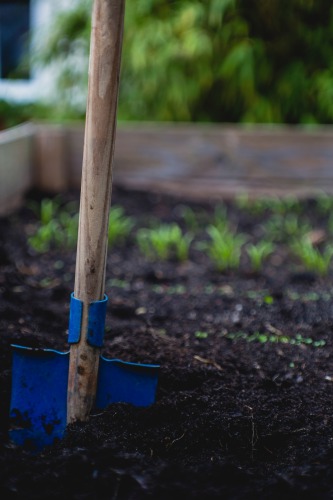Nachhaltige Grünanlagenpflege Teil 1 – Kompostierung
Eine nachhaltige Gartenpflege kann ohne großen Aufwand betrieben werden. Unsere studentische Mitarbeiterin, Sandra Busljetic, hat sich näher mit dem Thema beschäftigt.
Was ist Kompost?
Kompostieren. Hier werden Organische Bestandteile („Bioabfall“) von Kleinstlebewesen und Mikroorganismen als Nährstoff genutzt. Durch Ab- und Umbauprozesse entsteht nun ein neues Naturprodukt, welches ohne weitere technische Verfahren verwendet werden kann.
Kompost dient zum Schutz unserer Umwelt.
Der Energieverbrauch zur Herstellung von chemischen Düngemitteln ist sehr hoch, wobei es bei einem Düngerüberschuss auch zur Umweltbelastung führen kann. Zu viel Dünger führt dann zum Aussterben von Pflanzen- und Tierarten. Die Herausforderung ist nun den Dünger mit einer umweltfreundlicheren Methode zu ersetzen.
Zum Beispiel wird auch Torf als Dünger verwendet. Allerdings wurden durch Torfabbau einzigartige Moorgebiete zerstört, deren Entstehung einige hundert Jahre dauerte. Kompost kann Torf ersetzen. Der Verzicht auf Torf trägt dazu bei Moorgebiete zu schonen.
Kompost bringt viele positive Eigenschaften mit sich und kann beinahe jedes chemische Düngemittel ersetzen. Kompost verbessert die Struktur des Bodens, lockert diesen auf und dient als Wasserspeicher. Es erhöht die Fruchtbarkeit des Bodens und enthält natürliche Nährstoffe, welche zur Gesundheit der Pflanzen beitragen. Auch Geld wird gespart, da Ausgaben für Handelsdünger, Pflanzenschutzmittel, etc. nicht mehr oder kaum nötig sind.
Durch Eigenkompostierung wird auch die Restabfallmenge verringert. Zu kompostierbaren Küchenabfällen gehören beispielsweise Obst- und Gemüsereste, Tee-/Kaffeesatz und Eierschalen. Um persönlich zum Umweltschutz beizutragen braucht es also lediglich ein wenig Mühe und Bioabfall.
Quellen:
Fischer, P. & Jauch, M. (1999). Leitfaden zur Kompostierung im Garten. Abschlussbericht 1999. Triesdorf: Hochschule Weihenstephan-Triesdorf. Online abrufbar unter http://www.hswt.de/fileadmin/Dateien/Forschung/Wissenstransfer/Freizeit….
Niedersächsisches Ministerium für Umwelt, Energie, Bauen und Klimaschutz (2020). Warum ist Kompostieren wichtig? www.umwelt.nidersachsen.de. Abgerufen am 25.03.2020 von https://www.umwelt.niedersachsen.de/startseite/themen/abfall/bioabfall/….
WWF (2020). Mit Kompost züchten Sie Kraftstoffe für Ihren Garten. www.mobil.wwf.de. Abgerufen am 15.04.2020 von mobil.wwf.de/aktiv-werden/tipps-fuer-den-alltag/tipps-fuer-den-garten/kompost/?gclid=CjwKCAjwhOD0braqEiwAK7JHmFn88sZBbYYjd3utu4fZkrA-EJKjqr0wudg.































































